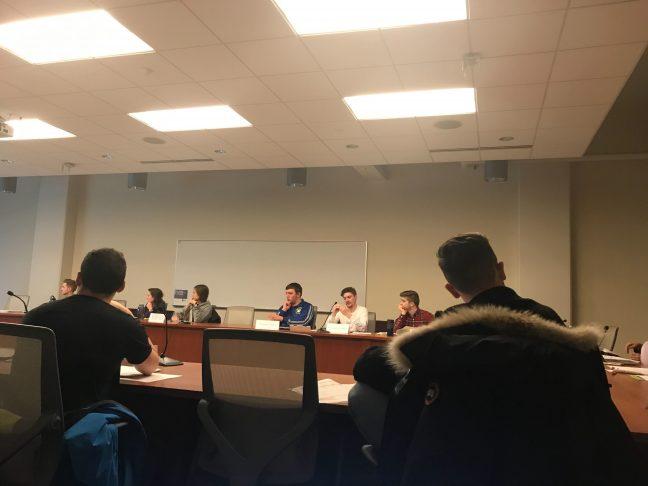Associated Students of Madison passed one round of voting on a bylaw change that would create a new position to coordinate on-campus efforts encouraging students to vote.
Laura Downer, the ASM Legislative Affairs Committee chair, introduced the bylaw change. Downer said the position would be appointed directly by Student Council, instead of going through the usual nomination boards process
“We’re really looking at what’s the way ASM can be most helpful [in coordinating student voting efforts] and looking at the coordination role between administration and standing committees that we have that are very valuable,” Downer said.
The legislation received no objections, passing the first round of voting 12-0-3. The second round of voting will be held at the next meeting.
University Health Services also presented on the connection between alcohol, campus health and race.
UHS alcohol, tobacco and other drugs prevention coordinator Reonda Washington said the Color of Drinking study found that while 50.3 percent of students at the University of Wisconsin exhibit high-risk drinking behaviors, white students tend to drink more than students of color.
The study also found that white students who drink at a high-risk level perform at higher rates academically than students of color who drink at a high-risk level.
“Our students are drinking more than anywhere else,” Washington said. “Our students drink more and are drinking more at high risk than all the other schools.”
The study found that students of color are more likely to want to leave the university due to the culture surrounding alcohol, Washington said.
Jenny Damask, the UHS alcohol, tobacco and other drugs prevention coordinator, said harmful drinking culture and high rates of depression and anxiety in students has led to a change in prevention strategy. UW now focuses mainly on why people are drinking in the first place, and tries to change those behaviors.
The coordinators are attempting to change the attitude toward high-risk drinking by changing policies, the environment surrounding high-risk drinkers and systems in place to assist students who drink at a high-risk level, Damask said.
But Damask also said they are looking at environmental inputs as well as individual choice. Community beliefs and standards, inconsistent alcohol enforcement, high-risk traditions and inexpensive alcohol are all environmental factors that contribute to that decision.
“We can talk to the individual all day long and try to do programming, but if the environment has a lot of these things going, it’s going to really affect the individual,” Damask said.
Nominations Board Chair Adam Fearing also introduced legislation to change bylaws. The change would ensure the nominations board would not exist in a state of “limbo” for the first few weeks of a new session by maintaining rules from the previous session.
“This will carry over the previous session’s standing rules for the nominations board until after the second meeting of the current session so that the Nominations Board has rules governing it during that period,” Fearing said.
Fearing said the Student Judiciary had told his committee the change needed to be made. The legislation will face its first round of voting at the next meeting.


